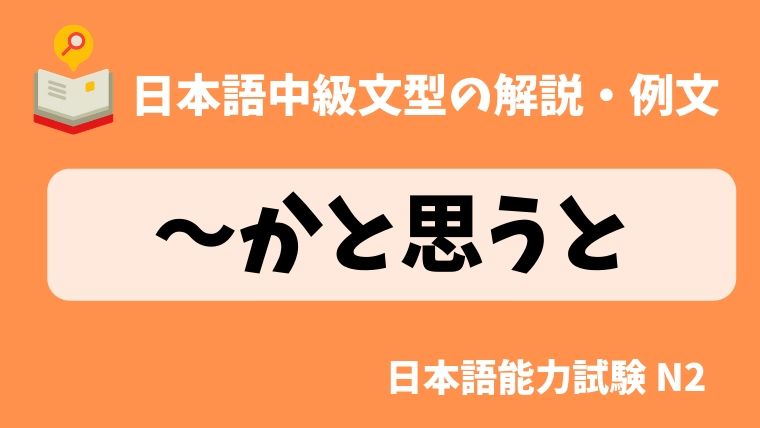(2025/07/12 08:56:34時点 Amazon調べ-詳細)
解説:〜かと思うと / 〜かと思ったら
●意味
“〜すると、すぐに”
前の事柄が起こった直後に後の事柄も起こる。
“as soon as ~”
The latter event happens immediately after the former event occurs.
●接続
V (タ形)+ かと思うと / かと思ったら
●日本語能力試験(JLPT)のレベル
N2
●備考
①意志文(〜しよう)、命令文(〜しなさい)、否定文などは後ろに来ない。
Statements of intent (“〜しよう”), commands (“〜しなさい”), or negative sentences do not come after it.
② 話し手の驚きや意外だという気持ちが含まれる。
It includes the speaker’s feeling of surprise or unexpectedness.
③ 自分の行動について使えない。
It cannot be used to describe one’s own actions.
例文
雲で空が暗くなったかと思うと、急に雨が降り出した。
No sooner had the sky darkened with clouds than it suddenly started to rain.
空が光ったかと思うと、ゴロゴロと音がなった。
No sooner had the sky flashed than there was a rumbling sound.
雨が降ってきたかと思ったら、すぐに止んだ。
No sooner had it started to rain than it stopped.
息子は家に帰ってきたかと思うと、すぐにどこかへ出かけていった。
No sooner had my son come home than he went out somewhere.
ジェームスさんは教室に入って来たかと思うと、「あっ」と何かを思い出したようにすぐに教室を出ていった。
No sooner had James entered the classroom than he remembered something and immediately left.
昼ごはんを買いに行こうかと思ったら、先輩がおにぎりをくれた。
No sooner had I thought about going to buy lunch than my senior gave me some rice balls.
小さな地震が来たかと思ったら、すぐに大きな地震も来た。
No sooner had a small earthquake occurred than a big one followed.



